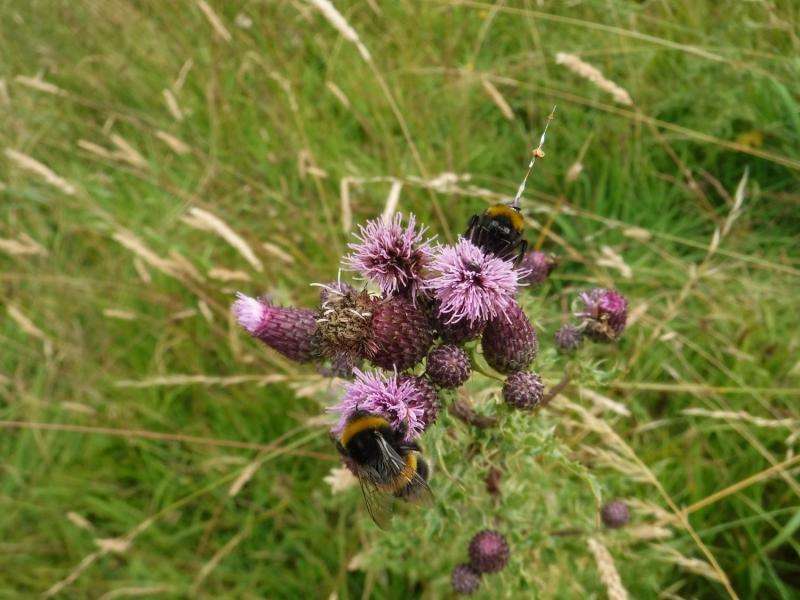Selfish bumblebees are not prepared to share

Well qualified bumblebees are not prepared to share their pollinating knowledge with less experienced bees, according to new research carried out at Queen Mary University of London (QMUL).
"Like other pollinators, bees face complex routing challenges when collecting nectar and pollen - they have to learn how to link patches of flowers together in the most efficient way, to minimise their travel distance and flight costs, just like in a traveling salesman problem," said lead author, Dr Mathieu Lihoreau.
While it often takes them some time to figure out an optimal route, little research has been carried out into whether bees' can copy other bees' flower visitation sequences in the field, to improve their foraging.
Co-author, Professor Lars Chittka, explains: "We wanted to monitor the way bumblebees behave when they bump into each other at flowers - would they compete, attack each other, or tolerate each other?"
Writing in the journal PLOS ONE, the team describe how they set up one of the largest outdoor flight cages ever used in bee research - a massive 20m by 40m or 880m2. They installed a range of artificial flowers, fitted with motion-sensitive video cameras, which had controlled nectar flow rates for the bees to visit. In order to get the bees to only visit the artificial flowers, they had to mow the lawn every day to get rid of all the natural ones.
Then they allowed two bees in at a time - one more experienced resident, and one newcomer. They predicted that the newcomers could save some time by simply copying the foraging route of more experienced resident bees.
While the newcomers did try to copy the choices of seasoned foragers, the more experienced bees really didn't appreciate their behaviour, and frequently attacked the newcomers and tried to evict them from flowers.
Dr Lihoreau, commented: "Our study is the first to examine the foraging routes followed by multiple bees at the same time. Responses to intense initial competition between bees for nectar could explain how pollinators gradually learn to visit different patches of flowers across the landscape."
"This work helps us understand how animals with relatively simple brains find workable solutions to complex route-finding problems. Understanding how bees find and compete for flowers in the landscape is a critical first step to conserving these animals, and the essential pollination services they provide to crops and wild plants" added co-author Professor Nigel Raine who worked at Royal Holloway, University of London at the time of the study.
More information: Lihoreau, M., L. Chittka and N. E. Raine (2016). Monitoring flower visitation networks and interactions between pairs of bumble bees in a large outdoor flight cage,PLOS ONE, 16 March 2016. dx.plos.org/10.1371/journal.pone.0150844
Journal information: PLoS ONE
Provided by Queen Mary, University of London



















